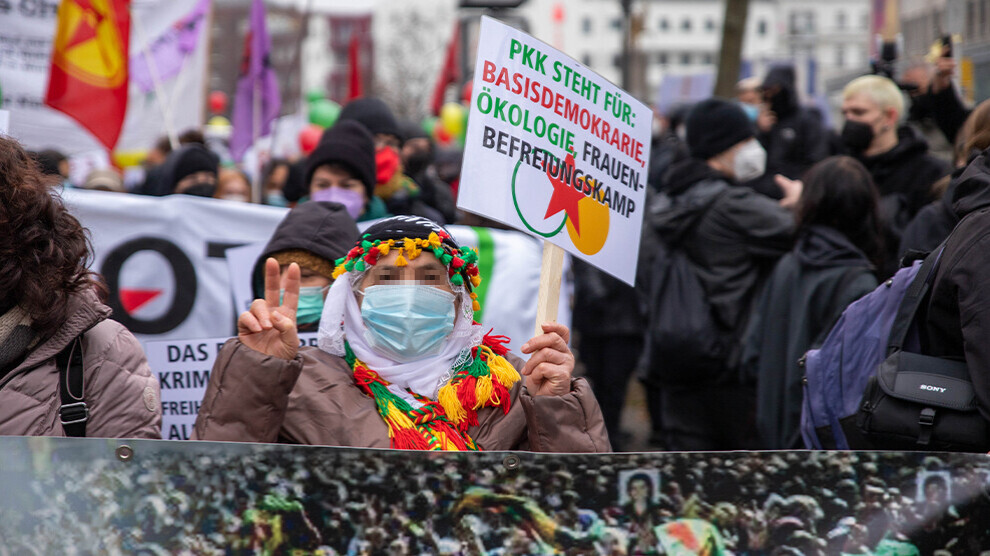Trials against Kurdish activists begin in Germany
The trials of two Kurdish activists accused of supporting the PKK will begin in February in Stuttgart and Koblenz. The basis for the charges is the so-called terror paragraph 129b.
The trials of two Kurdish activists accused of supporting the PKK will begin in February in Stuttgart and Koblenz. The basis for the charges is the so-called terror paragraph 129b.

Since 2011, Kurdish activists in Germany have been accused and sentenced on the basis of Article 129b for allegedly supporting the Kurdistan Workers' Party (PKK). The Cologne legal aid fund AZADÎ e.V. draws attention to two ongoing trials.
Proceedings against Mazlum D.
Mazlum D. was arrested on May 11, 2021, accused of having been responsible for the Heilbronn “PKK area” since July 2019. Since then, he has been at JVA Stuttgart-Stammheim. The opening of the trial before the Higher Regional Court (OLG) in Stuttgart will take place on 21 February and is provisionally scheduled for July.
Proceedings against Salman K.
The proceedings against Salman K. before the Koblenz Higher Regional Court begin on 1 February. He is accused of being the "PKK officer" in charge of the Gießen area from June 2018 and of the Mainz area from June 2019 to mid-February 2020.
Both defendants are not accused of individual crimes, and are charged only for their political activities.
"Terror Paragraphs" 129, 129a, 129b
Paragraph 129b of the Criminal Code was created in 2002 after the attacks carried out in the United States on 11 September 2001 and criminalizes a large number of political organizations, describing them as "terrorist organizations abroad". The majority of these are movements that lead national liberation struggles. The PKK is still among them. The "terror clause", as it is called in anti-fascist and left-wing circles, turns out to be purely a tool of investigation and political intimidation by the German judiciary.
Paragraph 129b expanded the existing criminal offense under Paragraph 129a (“formation of a terrorist organization”), introduced in 1976 in the course of the fight against insurgency in the Federal Republic, so that organizations operating abroad could also be prosecuted on German national territory. Already with the help of paragraph 129 created in 1871 (“formation of a criminal organization”) in the then German Reich Criminal Code, leftists and socialists in particular were criminalized.